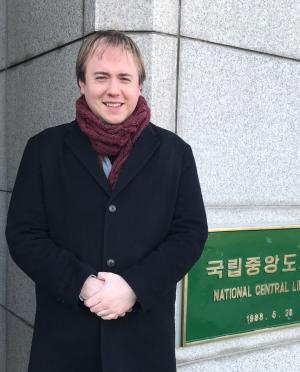
PhD 2021 (History and East Asian Languages) Harvard University
RESEARCH INTERESTS
Historiography, history of the book, print culture, manuscript culture, printing technology, reading, archives, translation
BIOGRAPHY
I am a cultural and intellectual historian of early modern Korea with interests in the production and circulation of knowledge, the history of the book, and historiography.
My book manuscript, Material Historiography: The Official Histories of Koryŏ from Their Compilation to the Present, examines the production, circulation, reception of two court histories treating the Koryŏ dynasty (918–1392), the History of Koryŏ and the Essentials of Koryŏ History, from their contested compilation in the early Chosŏn period (1392–1910) to their effective canonization in a plethora of modern editions and databases in our digital present. Drawing on material bibliography, I examine over one hundred call numbers of Chosŏn-era copies of the History and the Essentials held in institutions in Korea and Japan, and analyze their physical features, track ownership marks and seals, and study marginal notes left by readers to uncover the material history of these two historical works. I further track the reproduction of the two histories in numerous print and digital formats and show how tools of Chosŏn’s dynastic legitimacy were transformed into cultural heritage. In so doing, I illuminate practices of scholarship and historiography in early modern Korea and reveal an untold history of circulation and reception of the two histories concealed by the radical changes in media in the twentieth century. Arguing that media and scholarly practices such as notetaking and marginalia were (and are) just as important to the reading and writing of history as high philosophy, I illuminate the changing significance of Koryŏ history from the Chosŏn era to the present, show how the two court histories on Koryŏ—and their material form—influenced the practice of historiography and historical scholarship over time, and encourage reflection on what history actually was and is.
My second project is an investigation into Chosŏn Korea’s state-dominated and heavily non-commercial publishing economy, where woodblock, movable type, and handwriting were all viable methods of making books. It seeks to understand how Chosŏn people obtained their books in this multi-media and non-commercial textual ecology and examines the gifting, lending, borrowing, and copying of books, from royal presents to donations to school libraries.
I received my B.A. in Asian Area Studies from the University of British Columbia and hold an M.A. in Korean History from the Academy of Korean Studies and a Ph.D. in History and East Asian Languages from Harvard University. Prior to coming to the University of Chicago, I was a Korea Foundation postdoctoral fellow at Yale University.
PUBLICATIONS
“Royal Typographic Sublime: Discourse on Movable Type in Early Modern Korea (1392–1910).” Accepted by the Harvard Journal of Asiatic Studies.
“Facsimiles of Yore: Printing Technology and the Page Image in the Japanese Government General of Korea’s Reproduction of Historical Sources,” Modern Asian Studies (2023): 1–38.
"Culling Archival Collections in the Koryŏ-Chosŏn Transition," Journal of Korean Studies 24, no. 2, (2019): 225–53.
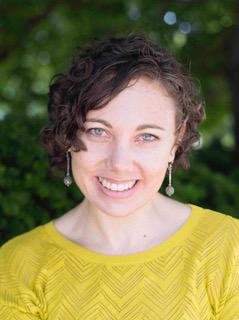
FIELD SPECIALTIES
Greater Latin America; Modern Mexico; Indigenous politics; environmental history; economic development; history and politics of social science; race in the Americas
BIOGRAPHY
Diana Schwartz Francisco's research and teaching focus on Indigenous politics, the nexus between economic development and environmental change in Latin America, the history and politics of social science, and race in the Americas.
Her book manuscript in progress, tentatively titled “The Dam’s Wake: Development, Indigenous Politics, and Anthropology in the Mexican Tropics,” is a history of the links between Indigenous politics and environmental change in twentieth-century Mexico. Many scholars have shown how, during the mid-twentieth century, the Mexican State used a combination of co-optation and coercion to both integrate rural and Indigenous citizens and carry out top-down regional development projects. Building on this literature, yet unsatisfied by its treatment of Indigenous identity as static and often divorced from the politics of ecological transformations, the book focuses on the ways development-induced displacement and Indigenous identity are entwined. Centering on the displacement of some 20,000 Indigenous residents of the Papaloapan River Basin for the construction of a massive hydroelectric dam in the 1950s, the book argues that displacement led relocated citizens and scientists alike to refashion and marshal Indigenous alterity as not merely an ethnic denotation but as a political identity to make demands vis-à-vis the Mexican State.
She earned her PhD in History from the University of Chicago (2016), her MA in Latin American Studies from UCLA, and BA in Ethnic Studies and Political Science from UC San Diego. Prior to coming to CLAS, she was a Mellon Postdoctoral Fellow in Latin American Studies at Wesleyan University (2016-18) and a Visiting Assistant Professor of History at Valparaiso University (2018-19). In Chicago, she has taught the Spanish language history course for the Odyssey Project (Proyecto Odisea), a college-credit humanities program for low-income adults. Before commencing graduate school, she worked for a Mexican non-profit that provided support for youth street workers.
PUBLICATIONS
“Displacement, Development, and the Creation of a Modern Indígena in the Papaloapan, 1940s–1970s,” in Ariadna Acevedo & Paula López Caballero, eds. Beyond Alterity: Destabilizing the Indigenous Other in Mexico. University of Arizona Press, 2018.
“Indigenous Policy in Twentieth-Century Latin America.” Latin American Perspectives 39 (September 2012): 111–116.
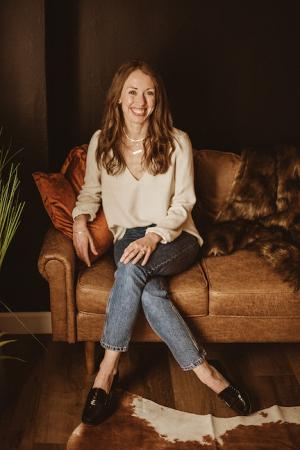
PhD'16 University of California, Berkeley
AB'09 Pomona College
FIELD SPECIALTIES
Modern Europe and US; histories of feminism, women and gender, and human rights; 20th century social movements
BIOGRAPHY
Peggy teaches and writes on feminism, women's movements, and motherhood in American and European history. Her current research interests center on motherhood, the environment, generational change, and the ways in which history weighs on the present. Her first book, WITHOUT CHILDREN: The Long History of Not Being a Mother (Seal Press, 2023), explores the history of non-motherhood and non-biological parenthood in light of falling births and rising rates of childlessness today. Her writing—on human rights, bodily rights, and care, as well as food, culture, motherhood, fashion, and gender—has also recently appeared in Jezebel, the Boston Globe, Los Angeles Review of Books, and elsewhere. Peggy received her Ph.D. in History from the University of California, Berkeley.
In addition to her teaching and writing, Peggy works with the Chair of Undergraduate Studies to oversee undergraduate advising, events, and curriculum in the Department of History.
PUBLICATIONS
Books:
WITHOUT CHILDREN: The Long History of Not Being a Mother, out April 18, 2023 from Seal Press.
Essays:
"Mothering in Bad Weather," coauthored with Bathsheba Demuth, Orion, March 5, 2021.
"Capitalism’s Baby Mania," Jezebel, August 29, 2019.
"Mayor Pete and the Millennial Paradox," Los Angeles Review of Books, May 28, 2019.
"The Settler Fantasies Woven into the Prairie Dresses," Jezebel, January 30, 2019.
"Loss, Doubt, and Liberation: Motherhood in 2018," History Workshop, October 24, 2018
"'A Gateway to Hell': A Nazi Mass Grave, Australian Forensic Scientists, and a 50 Year-Old Murder," Holocaust and Genocide Studies Volume 32, Issue 3, 1 December 2018: 361–383.
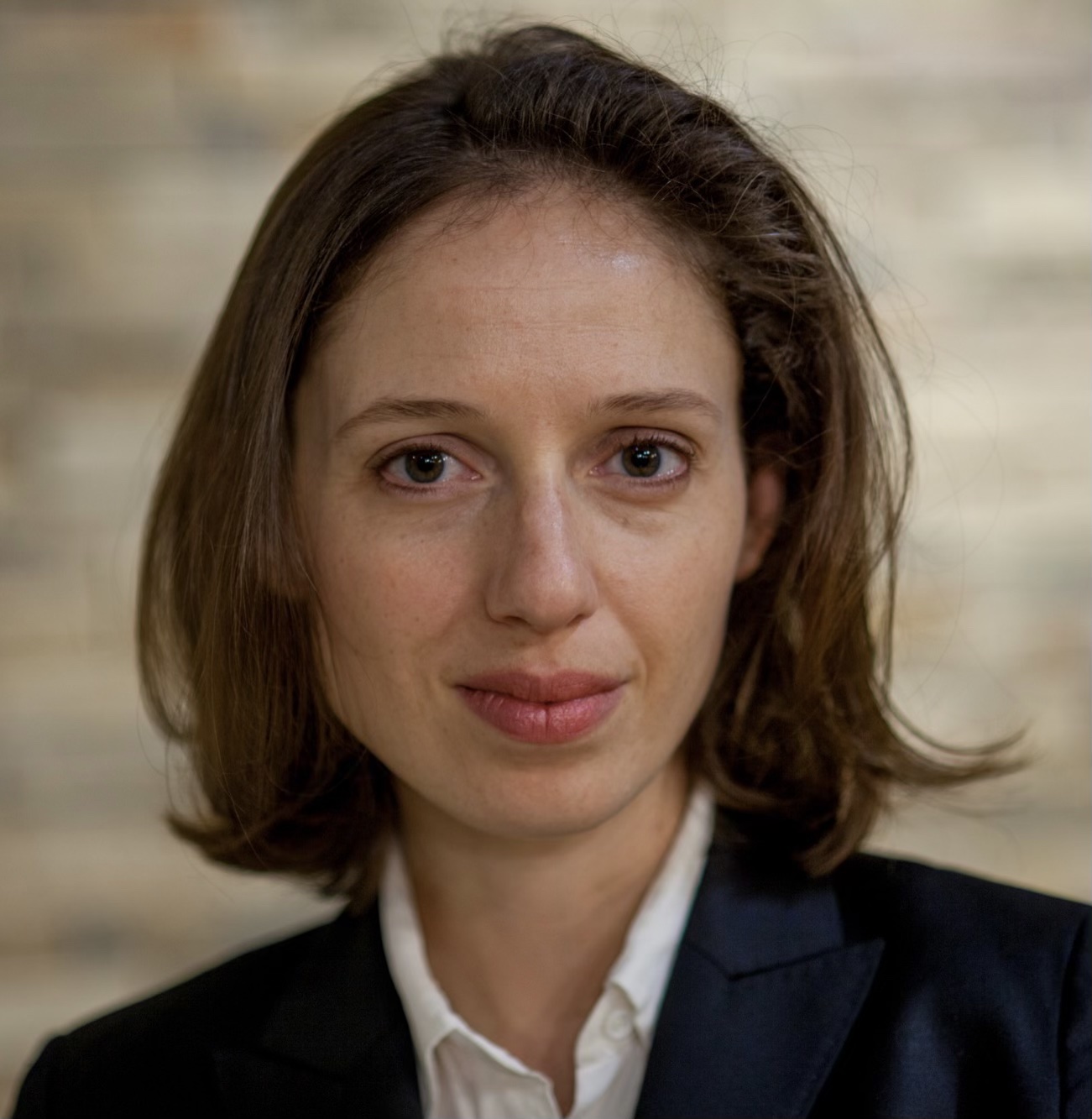
PhD 2017 (history) University of Pennsylvania
AM 2009 (Middle Eastern, South Asian, and African studies) Columbia University
RESEARCH INTERESTS
African history; Middle Eastern history; imperialism; global nineteenth century; history of death; African diaspora; race and slavery; visual and material culture
BIOGRAPHY
Dr. K.J. Hickerson (she/her) is cultural and political historian of the nineteenth and early twentieth century Nile Valley. Her research stands at the nexus between African history, the study of the African diaspora in the Middle East, and the study of imperialism. Dr. Hickerson’s book manuscript-in-progress, Mortal Struggles: Death and Empire in the Nile Valley, examines cultural practices surrounding death in Sudan throughout the era of Ottoman-Egyptian colonialism, the independent state known as the Mahdiyya, and the early years of the co-dominion of Sudan by Egypt and Great Britain. Her other research and writings address the politics of photography, art, fashion, and medicine in the Nile Valley and beyond.
Before coming to UChicago, Dr. Hickerson was a Postdoctoral Fellow at the Middle East Center at the University of Pennsylvania. She was the Sir William Luce Fellow at Durham University and has received fellowships and grants from the Huntington Library, the Boston Athenæum, the British Academy, the African Studies Association, among others and her writings have appeared in Durham Middle East Papers, Journal of Northeast African Studies; Encyclopaedia of Islam, 3rd edition; and the Sudan Studies Bulletin.
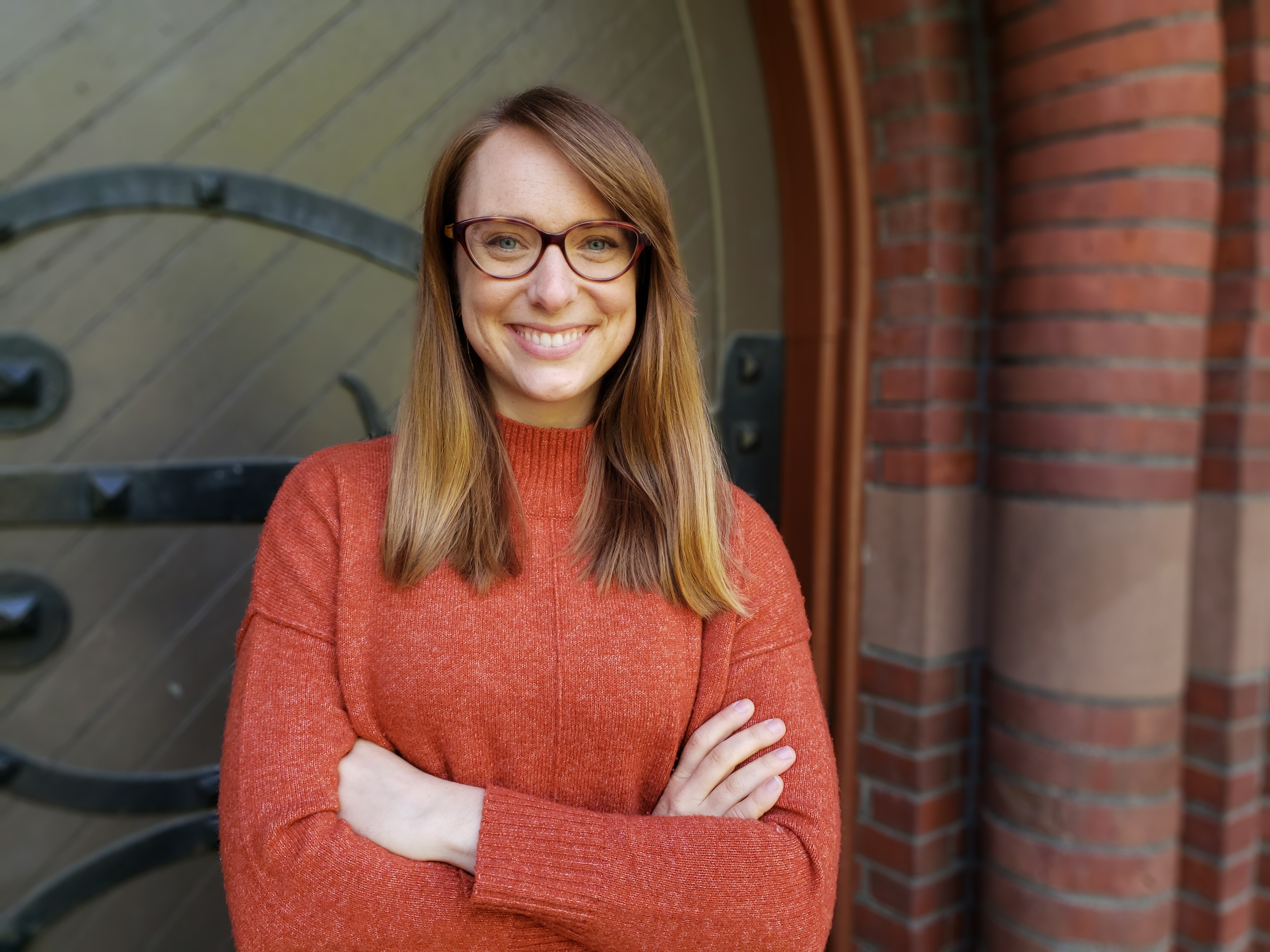
PhD Harvard University
BA Swarthmore College
RESEARCH INTERESTS
US history; disability history and studies; social movements and policy; history of medicine; history of technology; gender and sexuality; history of education
BIOGRAPHY
Madeline J. Williams is a historian of disability and of the United States. Her work positions disability as both a kind of lived experience and as a powerful framework for analyzing politics and culture. She researches and teaches about disability as fundamentally intersecting and interacting with race, class, gender, sexuality, and more.
Her current book project, Disability Democracy: Blind-Led Organizing and the Making of the Modern America, tells the story of a crucial early chapter in the long history of social movement building around disability. It centers on the emergence and activities of political associations led by blind Americans. Activists founded these associations across the United States beginning in the last three decades of the nineteenth century. Organizers built on the social connections, technological innovations, and skills gained from their education at residential state schools for blind children founded by Christian philanthropists during the 1830s. The associations arose in response to significant transformations of American state and society. In the wake of the formal end of chattel slavery, the elaboration of a Jim Crow order maintained and extended racial hierarchies in all spheres of national life. This context, coupled with intensifying economic inequality and the rise of a mainstream eugenics movement, shaped the blind-led associations’ work, including the horizons and limitations of their imagination for changemaking. Among other achievements, blind activists were remarkably effective at promoting policy initiatives through grassroots campaigns at the state level. Some of these policies would have unexpected afterlives in major federal disability programs through the twentieth century and into the present day. Disability Democracy demonstrates the place of disabled-led organizing as one of the crucial social movements that forged the modern United States.
Williams’s work has been supported by research and funding bodies including the American Historical Association (AHA); the Center for American Political Studies (CAPS); the Charles Warren Center for Studies in American History; the Consortium for History of Science, Technology, and Medicine (CHSTM); and the Weatherhead Center for International Affairs. She holds a BA from Swarthmore College and a PhD from Harvard University.
SELECTED PUBLICATIONS
Disability Democracy: Blind-Led Organizing and the Making of Modern America, in preparation.
“Reading the Past to Design Accessible Futures: Blindness and Education from Nineteenth-Century Tactile Books to Twenty-First-Century 3-D Printing,” American Quarterly 71, no. 4 (2019): 1111–1140.
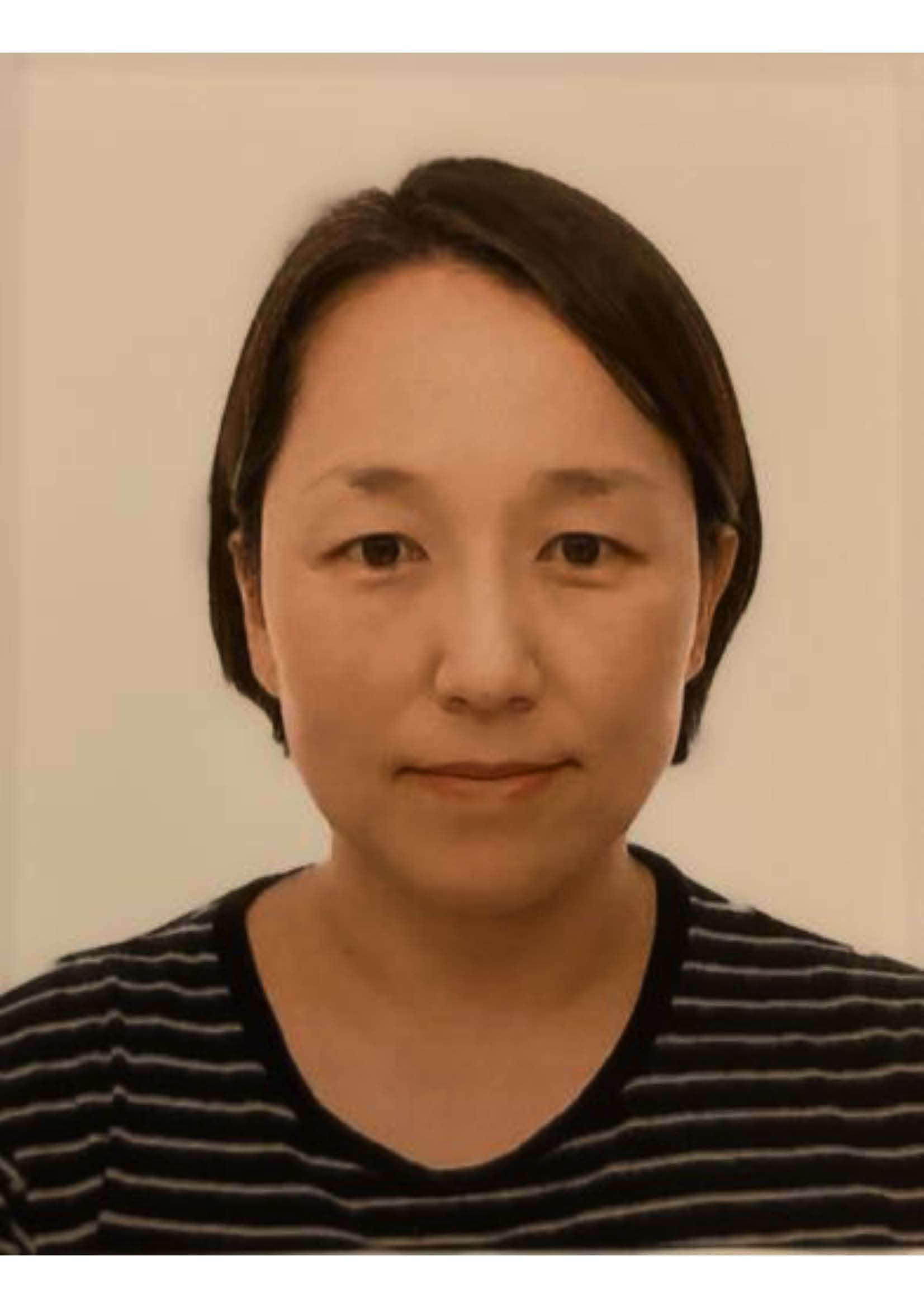
RESEARCH INTERESTS
My primary research projects have focused on the intersections of women, labor, and capitalism in South Korea and a comparative analysis of Cold War-era popular culture, gender, and society in East Asian countries. Currently, I am writing a book manuscript, entitled "Reimagining Cold War Domesticity: South Korean (De)Housewifization, Family Economy, and Consumer Capitalism," about the economic and cultural history of postwar South Korean domesticity, which considers how the transnational gendering processes of domesticity shaped to naturalize and produce derivatives in relation to class stratification, state, culture, and economy. I want my research to reframe Cold War-era historical narratives by focusing on women's labor and the family unit, demystifying the hegemonic place the U.S. occupies within Korean and East Asian history during the Cold War. The second book project will expand my research interests in gender history into transnational, cultural, and economic dimensions and investigate women's work in the private education industry in Korean diaspora communities in the U.S. and other Asian countries.
BIOGRAPHY
Since earning my Ph.D. in modern Korean history at the University of Wisconsin-Madison, I have taught various courses related to Korea and Asia, addressing history, gender, culture, society, and politics at CSU-Chico, Vytautas Magnus University, Lithuania, Seoul National University, and Soongsil University. Before joining the University of Chicago, I finished a postdoctoral fellowship at the Zvi Yavetz School of Historical Studies at Tel Aviv University. I worked as an HK research professor at the Institute for the Study of Korean Modernity at Yonsei University in South Korea.
Recent Research / Recent Publications
2023. “Selling Trust: Solicitation Subscriptions and the Feminization in the South Korean Insurance Industry during the Cold War Era, ” Korea Journal, March 2023.
2022. “South Korean Housewives’ Emerging Economic Authority and Contestation of Domesticity during the Cold War Era,” Gender and History, July 2022, 1-23 (print version forthcoming, July 2024).
2022. “Dreaming of Intact Home Front: Erasing Female Subjectivity in Popular Media Representations of the Vietnam War.” Seoul Journal of Korean Studies 35, no. 1 (June 2022): 187–213.
2018. “Kyebaram: The Culture of Money and Investment in South Korea during the 1970s.” In Cultures of Yusin: South Korea in the 1970s, edited by Ryu Youngju, 89-118. Ann Arbor: University of Michigan Press.
